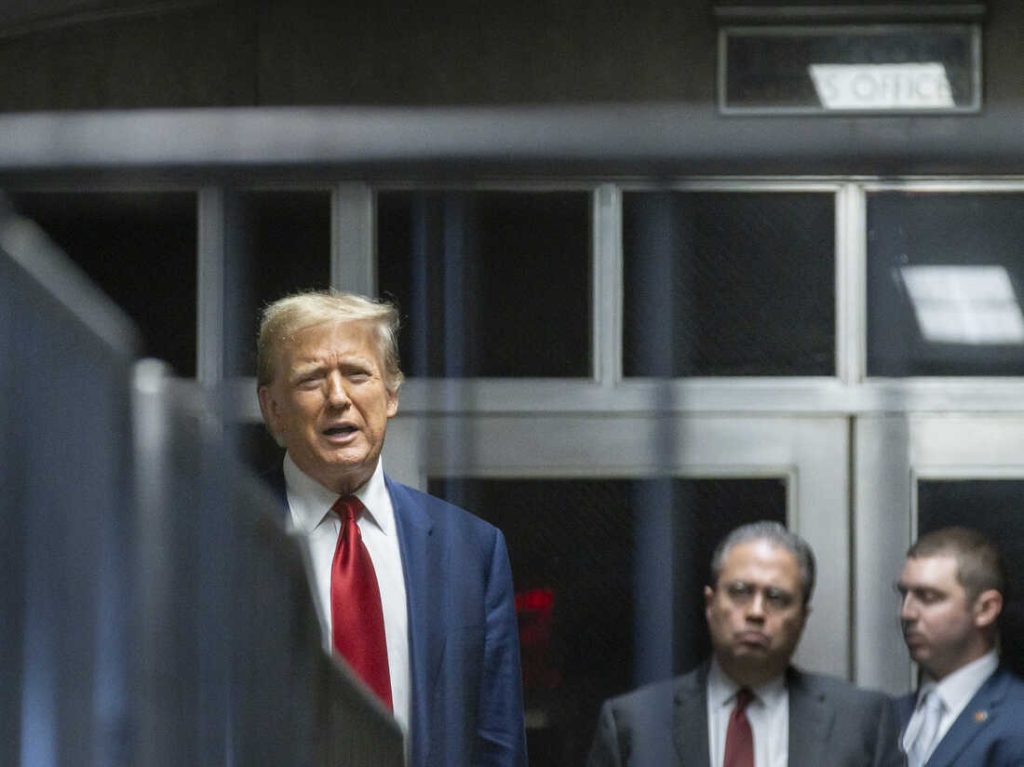The legal saga surrounding former President Donald Trump’s criminal hush money case has taken a significant turn with the imposition of a limited gag order by Judge Juan Merchan in New York. This development comes amidst heightened tensions and escalating rhetoric surrounding the upcoming trial, underscoring the complexities of balancing free speech rights with the administration of justice.
The Gag Order:
Judge Merchan’s decision to grant the Manhattan district attorney’s request for a limited gag order on Trump represents a pivotal moment in the proceedings. The order restricts Trump from making public statements about witnesses, prospective jurors, court staff, and their families, as well as lawyers other than Manhattan District Attorney Alvin Bragg. This move follows a series of inflammatory remarks made by Trump, which the judge deemed to pose a significant risk to the administration of justice.
Legal Implications:
The imposition of the gag order raises important questions about the intersection of free speech and the right to a fair trial. While individuals, including public figures like Trump, are entitled to express their opinions, the judiciary must also ensure that trial proceedings are conducted impartially and without undue influence. The gag order reflects Judge Merchan’s efforts to mitigate potential prejudicial publicity and safeguard the integrity of the trial process.
Challenges Ahead:
Despite the gag order, Trump’s legal team continues to seek delays and challenge the impartiality of potential jurors, citing concerns about biased media coverage and pretrial publicity. These challenges underscore the complexities of conducting high-profile trials in the age of mass media and social media, where information spreads rapidly and opinions are often polarized. Navigating these challenges will require careful consideration and adherence to legal principles.
Public Reaction:
The gag order has elicited mixed reactions from the public, with supporters and critics of Trump voicing their opinions on social media and in the press. Some view the order as a necessary step to ensure a fair trial, while others see it as an infringement on free speech rights. The ongoing debate highlights the broader societal tensions surrounding issues of accountability, transparency, and the rule of law.
As the trial date approaches, all eyes will be on the courtroom as the legal battle unfolds. The imposition of the gag order adds another layer of complexity to an already contentious case, raising important questions about the balance between freedom of expression and the integrity of the judicial process. Ultimately, the outcome of Trump’s trial will have far-reaching implications, shaping not only his political legacy but also the broader discourse surrounding accountability and justice in America.
The limited gag order imposed on Donald Trump represents a critical moment in his ongoing legal battle. As the trial date looms, stakeholders must navigate a complex web of legal, ethical, and political considerations. While the gag order seeks to temper inflammatory rhetoric and ensure a fair trial, its implementation underscores the challenges of upholding the principles of justice in an increasingly polarized society. As the legal proceedings unfold, the nation watches with bated breath, awaiting the resolution of this consequential case.
